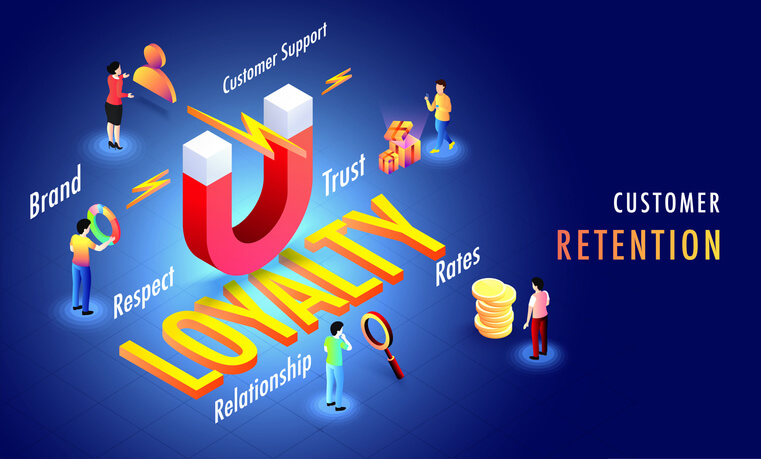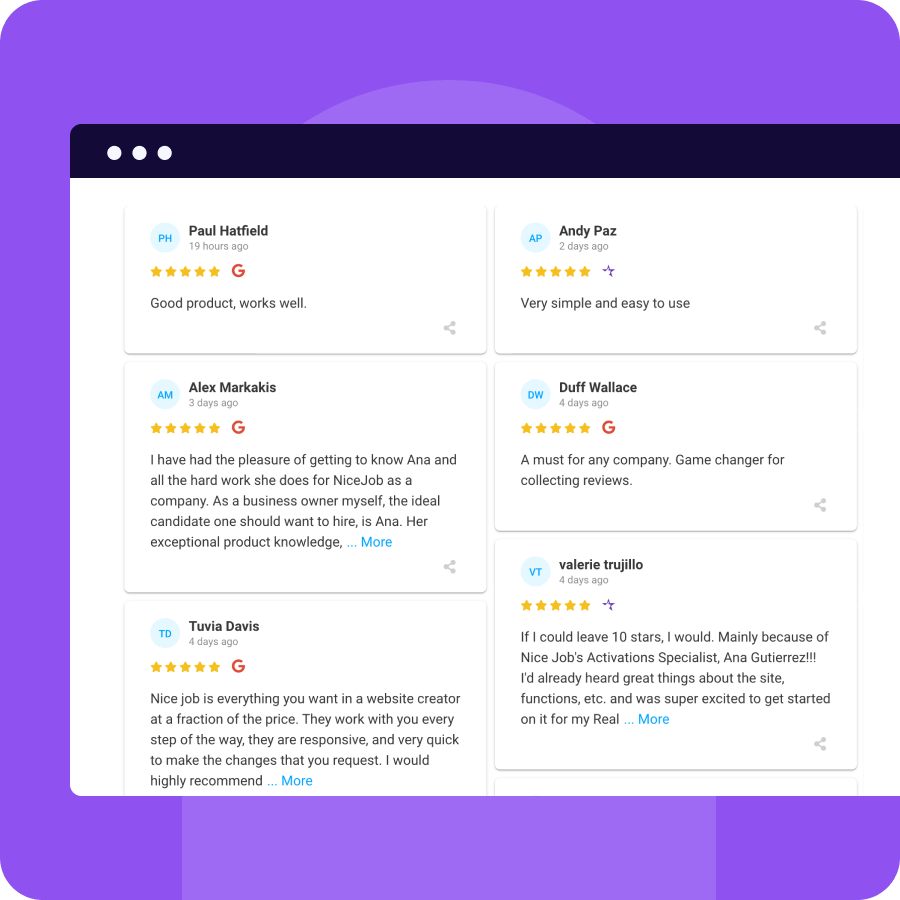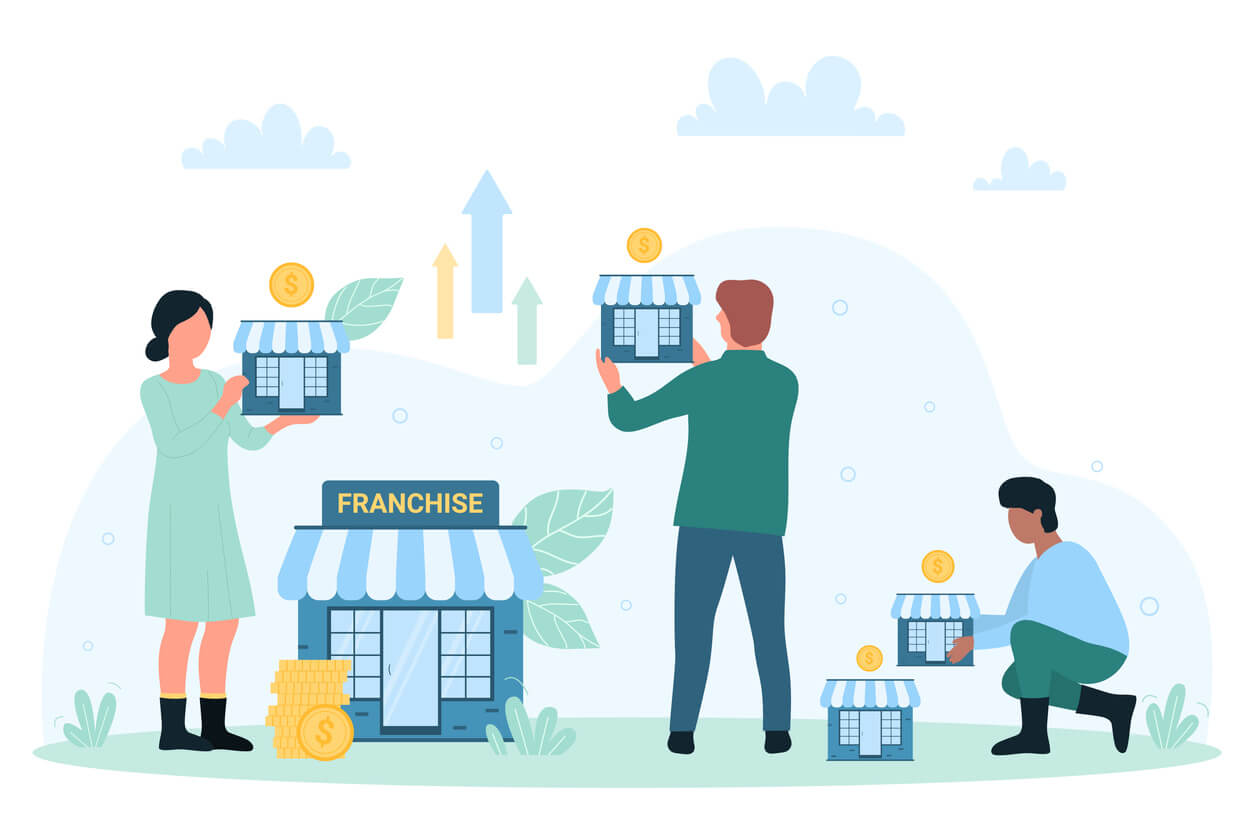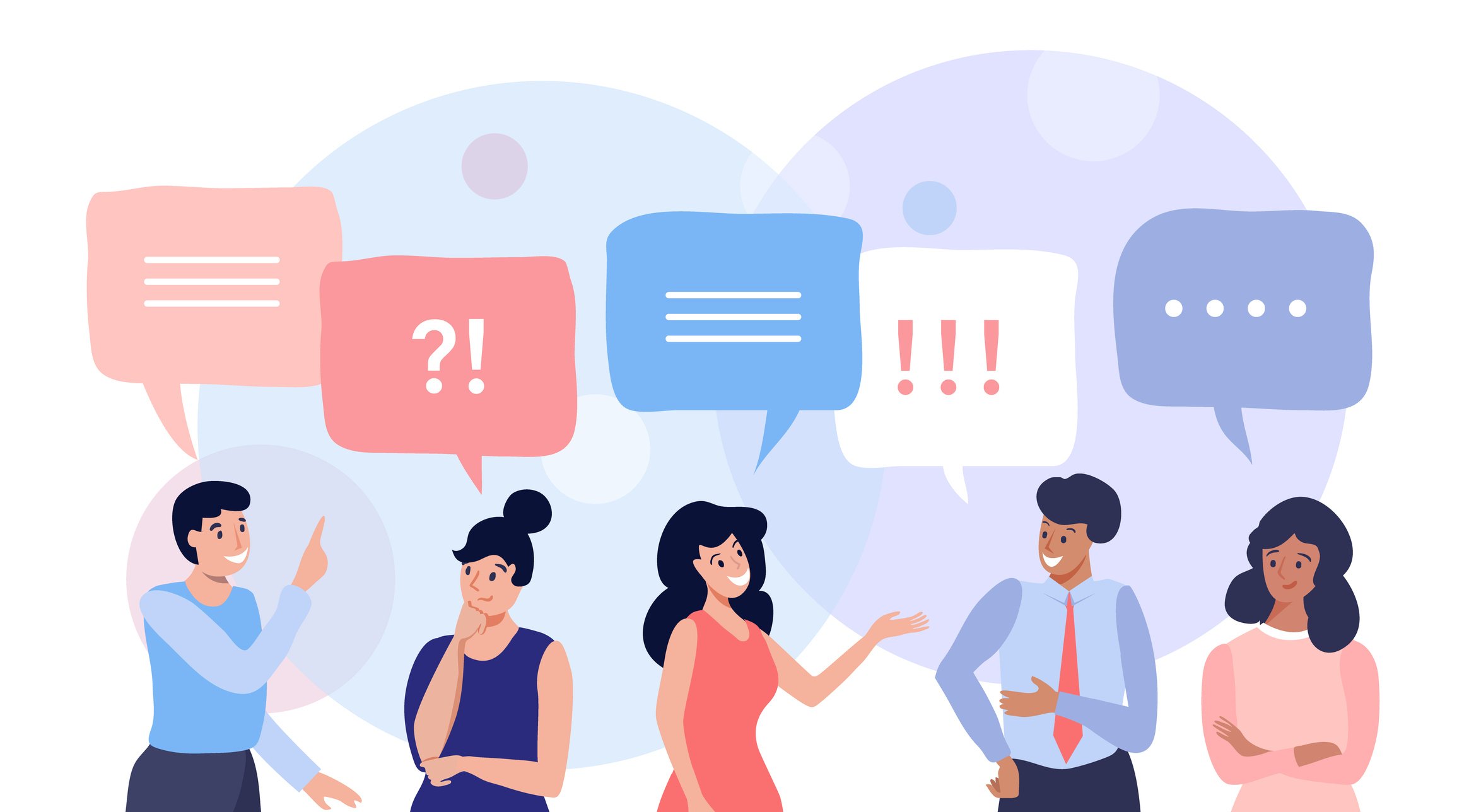4 Shortlisted Customer Retention Strategies That Are Still Effective Today
It’s easy to overlook what you have when you’re always focused on getting more. That’s the story of customer retention in a nutshell!
It costs far less to retain an existing customer than to acquire a new one. Customer retention also adds to brand loyalty and helps drive word of mouth advertising.
Yet, companies often end up ignoring or downplaying this vital aspect of business strategy. It’s a costly mistake that is reflected in the customer churn rate being as high as 30% in some global markets.
That’s understandable, given that customers today are spoilt for choice in every sector and industry. So what can brands do to retain customers over the long term?
That's where customer retention strategy comes in. From improving customer service to creating personalized experiences for audiences, there are multiple ways to ensure your customers remain committed to your brand.
In this article, we'll explore some simple yet effective customer retention strategies that you can implement.
Whether you're a small startup or a large corporation, these strategies will help you nurture your loyal customer base, drive consistent growth over time, and build a solid market reputation doing it.
Let's get started!
What Is Customer Retention?
Customer retention refers to the ability of a business to keep its existing customers over time. It’s a metric represented as the percentage of customers who continue to do business with a company after their initial purchase.
Retaining customers is essential for the long-term success of any business, as it helps build a base of loyal customers and drive future growth.
How to Calculate Your Customer Retention Rate?
Okay, you're all excited about retaining customers. But customer retention strategies require one thing to actually improve customer retention...
That is, your customer retention rate and how to measure it!
Here's a simple example to help you calculate your customer retention rate:
Let's say you had 100 customers at the start of the year. During the year, you acquired 50 new customers. At the end of the year, you had a total of 120 customers. To calculate your retention rate, subtract the number of new customers from the total number of customers: 120 - 50 = 70.
Next, divide the result by the number of customers you had at the start of the year: 70 ÷ 100 = 0.7. Finally, multiply the quotient by 100 to get the retention rate as a percentage: 0.7 x 100 = 70%. This means that you were able to retain customers at the rate of 70% over the year.
And that’s how you measure customer retention!
Tracking your retention rate over time helps you develop effective customer retention strategies. It also allows you to identify market trends and areas of improvement such as customer service or product quality.
Customer Retention Rate = (Total # of Customers at the end of the Period - New Customers Acquired)/(Customers at the Start of the Period) x 100
Why Is Customer Retention Important?
One of the main reasons why a customer retention strategy is so important is that it costs less to retain customers than to acquire new ones. Studies show that acquiring a new customer can be between five and seven times more expensive than retaining an existing one.
That’s because retaining customers requires less marketing effort and advertising spending. Existing customers are also more likely to make future purchases and refer their friends and family to your business, and even spend money on higher-end products or services.
Another reason why customer retention strategy is so important is that existing customers tend to spend more money than new customers. That’s because they are already familiar with a business's products or services and have established a level of trust and loyalty. It makes existing customers all the more valuable for a business.
The Best Customer Retention Strategies That Actually Work

Wondering what specific steps you can take to improve your customer retention strategy? Don’t worry, we’ve got you covered!
Here is a shortlist of four proven customer retention strategies that you can implement to increase customer retention.
1. Personalization
Personalization is one of the most effective aspects of a customer retention strategy. It involves tailoring customer experiences to their specific needs and preferences.
You can offer your customers customized products or services, tailored recommendations, and targeted marketing messages.
Personalization is quickly becoming a prerequisite for business success in any sector, with 56% of consumers expecting all offers to be personalized.
Another benefit of personalization is that it helps spark deeper connections between a business and its customers.
Knowing that a company understands their individual needs and preferences is more likely to make customers feel valued and appreciated. This can lead to increased loyalty and a stronger, more long-lasting relationship.
Personalization can also improve customer experiences by making them more convenient and relevant. For instance, a business can personalize the online shopping experience of repeat customers by recommending products based on their previous purchases or browsing histories
Similarly, you can offer bespoke customer service experiences to existing clients by addressing them by name and providing tailored resolutions to their problems.
If you still need a reason to offer personalized services, consider the fact that personalization can directly impact your bottom line. Customer surveys show that personalization helps high-growth companies drive 40% more revenue than their slow-growing counterparts.
2. Excellent Customer Service
Customer service is king when it comes to customer retention strategies. Providing top-notch support to repeat customers is essential for building strong, lasting customer relationships that can drive growth for your business.
According to Zendesk’s CX Trends 2022 report, 81% of consumers say a positive customer service experience increases the likelihood of them making another purchase.
But what exactly does great customer service entail? It's all about responsiveness, empathy, accuracy, and going above and beyond to exceed customer expectations.
Being responsive means being available to your customers whenever they need support. Timely and efficient support is key to keeping customers coming back for more.
You can help make that your team is consistently delivers that "timely and efficient support" by creating creating a training program for your team to enhance their communication skills and help deliver exceptional service.
Empathy is the bedrock of strong customer relationships. Customers want to know their concerns are being genuinely heard and understood. Showing empathy and compassion helps build trust and loyalty and encourages customers to give you their business repeatedly.
It’s no surprise, then, that good customer service is a leading brand loyalty driver among consumers worldwide. One survey reported 77% of respondents saying they considered good customer service to be a critically important component of brand loyalty.
Accuracy is another element of effective customer service. Customer expectations are that you have a thorough understanding of your products or services and be able to provide them with accurate information to resolve their issues.
Being able to collect customer feedback and handle complaints quickly and effectively is vital to ensuring satisfied customers.
How to Deliver Exceptional Customer Service for a Small Business
by Michelle Myers, Founder of Pink Callers
Read more
3. Loyalty Programs
Customer loyalty programs are a secret weapon in the battle to achieve high customer retention rates.
Offering rewards and incentives to customers who continue to do business with a company helps foster a sense of appreciation and value. That can lead to building stronger relationships, encouraging repeat purchases, and driving growth.
Just imagine being a customer at a restaurant where you're offered a free meal for every ten visits. Not only do you feel appreciated and valued, but you're also incentivized to keep coming back to get that reward.
Or maybe you're a frequent shopper at a local store, which decides to offer you a discount or a free product after a certain number of purchases. It’s the kind of deal that makes immediate financial sense and encourages you to keep coming back.
According to a recent survey by Bond Brand Loyalty, the average US consumer was a member of more than 16 loyalty programs. It just goes to show how important these programs are for an effective customer retention strategy.
With so many options available to consumers, businesses need to ensure their loyalty programs are creatively designed to offer real value to their customers.
It doesn’t matter what form the loyalty program comes in (e.g., discounts, free products, exclusive access to events or experiences) as long as it serves to keep repeat customers happy.
4. Omnichannel Marketing
Picture this.
You're browsing social media when you see an ad from your favorite brand for a particular product that you've been looking for. You click on the ad and it takes you to the product page - only to find that the product is no longer in stock.
Frustrating as it is, there’s a silver lining. The page gives you the option to receive a notification whenever the product is back in stock. You sign up for the notification and receive an email a few days later. It says the product is now available for purchase. You place the order and have it delivered to your doorstep the following day.
This is an example of how omnichannel marketing can work to retain existing clients and generate more leads for your business. In a way, it's one of the customer retention strategies that helps you retain customers even before they've made a purchase!
Omnichannel marketing involves providing integrated and personalized customer experiences across multiple marketing channels and touchpoints. It covers everything from brick-and-mortar stores to online shopping, social media, email marketing, and mobile apps.
Omnichannel marketing results not only in higher order rates but also enhanced customer loyalty. Omnichannel campaigns bring an astonishing 494% higher order rate and a 90% higher retention rate than single-channel campaigns.
This customer retention strategy allows businesses to meet customers where they are, offer personalized and consistent experiences, and attract potential customers. By leveraging data and analytics to track customer behavior and preferences, businesses can provide targeted and relevant marketing messages that speak directly to their customer’s interests and needs.
3 Examples of Popular Brands with Successful Customer Retention Strategies
Many brands have successfully implemented a customer retention strategy and programs to keep their customers engaged and loyal. Here are a few examples:
Amazon
Amazon is known for its exceptional customer service and personalized experiences. Its Prime membership program offers free shipping, exclusive deals, and access to streaming services, among other benefits. This approach has enabled Amazon to multiply customer loyalty and retention rates.
Sephora
Sephora's Beauty Insider program offers rewards and benefits to customers who make repeat purchases, including free products, exclusive offers, and access to beauty events. This helps the brand build strong connections with the most loyal customers and drive engagement.
Zappos
Online retailer Zappos is known for its exceptional customer service, including free shipping and returns, a 24/7 customer support team, and a 365-day return policy. This has helped the brand create a legion of loyal customers who value the convenience it provides.
Reputation Marketing: A Key Part of Your Customer Retention Strategies
Businesses need to bring the A-game when it comes to building customer loyalty and retention. Those who’ve done it successfully know it takes far more than just a good product or service to keep customers engaged and coming back for more.
That's where NiceJob comes in. NiceJob offers a range of powerful solutions designed to help businesses create exceptional customer experiences that drive loyalty and retention. From reputation management to referral marketing and collecting customer feedback, NiceJob has everything businesses need to forge strong relationships with their customers.
Discover the magic of reputation marketing!
Easily get more reviews, referrals, and sales through word of mouth that turns your loyal customers into vocal brand advocates!
Learn more




